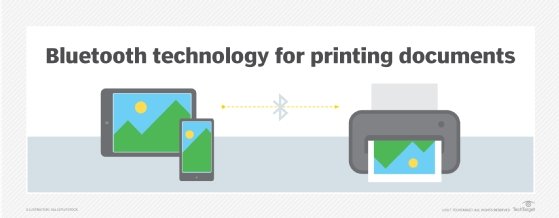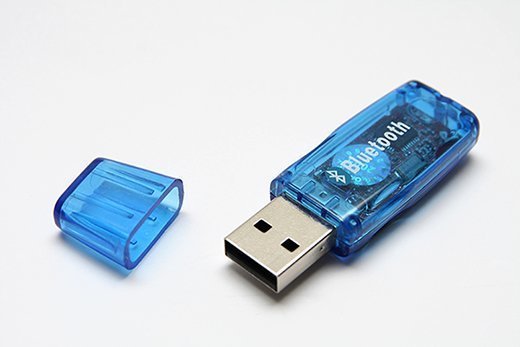Bluetooth
What is Bluetooth?
Bluetooth is a telecommunications industry specification that describes how mobile devices, computers and other endpoints can easily communicate with each other using a short-range wireless connection.
What is Bluetooth used for?
Early Bluetooth versions enabled users of cellular phones, pagers and personal digital assistants to buy a three-in-one phone that could perform the following functions:
- Double as a portable phone at home or in the office.
- Quickly synchronize with information in a desktop or notebook computer.
- Initiate the sending or receiving of a fax.
- Initiate a printout.
In general, this phone enabled all mobile and fixed computer devices to be totally coordinated over a short distance. More recent Bluetooth versions make it possible for a user to place hands-free phone calls through a mobile phone or connect wireless headphones to a smartphone's music playlist, for example.
Bluetooth technology can simplify tasks that previously involved copious wires strewn among peripheral devices. For instance, a user can wirelessly connect a Bluetooth-enabled printer to a desktop, laptop or mobile device and print out documents. It is also possible to sync a wireless keyboard with a tablet-style device, such as an Apple iPad or Kindle Fire, or even a DVD player with a television.

Additionally, mobile operating systems enable users to stream media, such as movies, television shows and music, to compatible TVs, speakers and media players via Bluetooth.
Laptop or desktop computers without built-in Bluetooth can gain those capabilities through an inexpensive USB dongle. The one caveat here is that Bluetooth technology typically uses considerable battery power, so users should monitor it closely to prevent their device's battery from running out.

How does Bluetooth work?
Bluetooth technology requires that each device include a low-cost transceiver chip. The transceiver transmits and receives in a previously unused frequency band of 2.45 GHz that is available globally -- with some variation of bandwidth in different countries. In addition to data, up to three voice channels are available. Each device has a unique 48-bit address from the IEEE 802 standard. Bluetooth connections can be point to point or multipoint.
The maximum Bluetooth range is 100 meters, although most devices support a range of up to 10 meters. Data can be exchanged at a rate of 1 megabit per second -- up to 2 Mbps in the second generation of the technology. A frequency hop scheme enables devices to communicate even in areas with a great deal of electromagnetic interference. Bluetooth provides built-in encryption and verification.
The technology got its unusual name in honor of Harald Bluetooth, king of Denmark in the mid-10th century.







